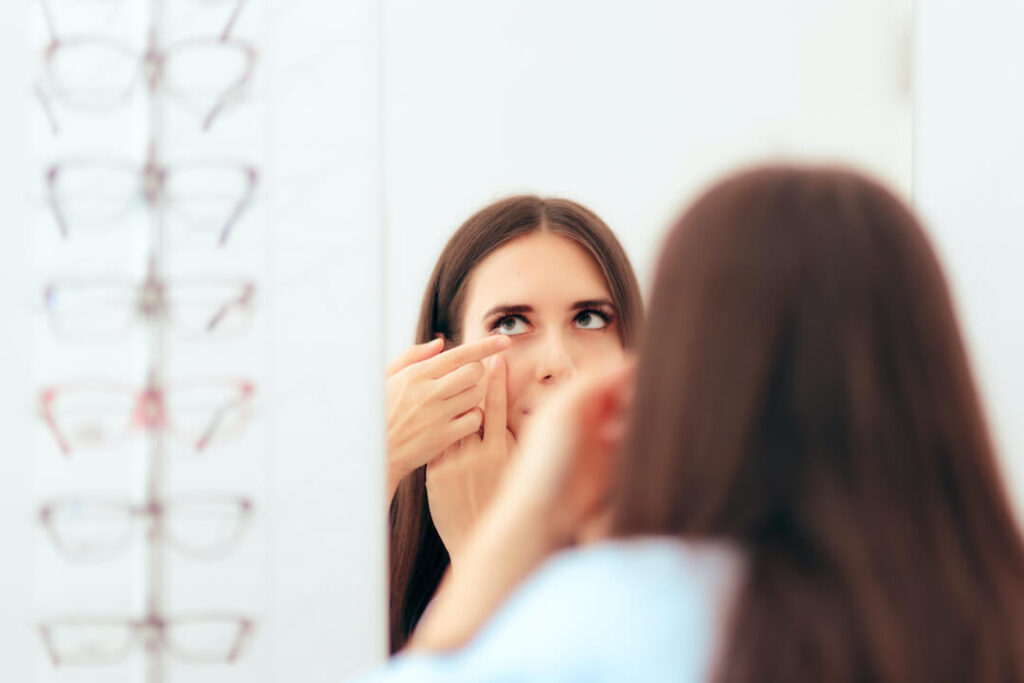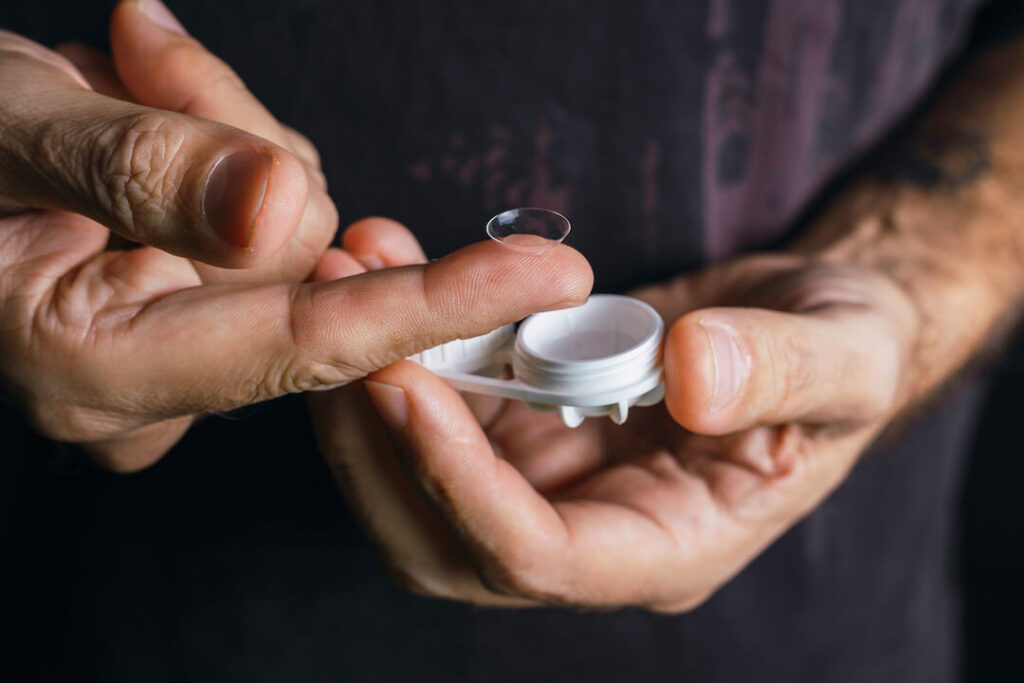Not sure if contact lenses are the right choice for your vision? Let’s go over the contact lenses pros and cons
Table of Contents
Pros and Cons of Contact Lenses
Before you make a decision to get contacts to correct your vision, let’s explore some of the pros and cons
Pros of Contact Lenses
Cons of Wearing Contact Lenses
Eye Health and Safety Considerations
Weighting the contact lens pros and cons? Let’s explore the risks before you make your final decision

Considering the leap from glasses to contact lenses, weighing the health considerations is crucial. Sure, contacts can offer a freedom that glasses don’t—but they also come with unique challenges and other complications, such as eye diseases.
Importance of Proper Care
- Rinse your hands before handling your contacts—your fingers carry more germs than most parts of your body
- Avoid sleeping in them unless your doctor approves— even if they’re designed for overnight use
- Never rinse or store them in water—the friendly tap water has unfriendly microbes for our delicate eyes
In addition, make sure not just any solution goes into those tiny cases along with your contacts at night. The right cleaning solutions are key here as different types suit different kinds of lenses and users’ needs better than others. You might find one brand irritates your eyes while another feels just right, so don’t be afraid to experiment a little.
Remember, we’re talking about something that goes into your eye— it’s worth the extra time and care.
Making the switch to contacts can feel liberating, but it also comes with its own set of hurdles. Taking good care of your eyes becomes even more crucial when wearing contact lenses—neglecting to clean them just for a single night might let harmful bacteria in. Always ensure you wash your hands before touching your lenses, and don’t wear them overnight unless given the green light by your doctor. Keep in mind that finding the perfect solution for you may take some time, so be patient and persistent.
Daily Maintenance and Care Tips for Contact Lenses
Beyond keeping yourself healthy, there are a number of considerations for maximum comfort while you wear your lenses

The Daily Cleaning Routine
Proper Storage Matters
Your storage case needs as much attention as your contacts themselves. Believe it or not, these tiny containers can be breeding grounds for germs if neglected. You should clean the case with fresh solution daily and let it air dry while you’re wearing your contacts during the day. Experts also suggest replacing the case every three months for best practice in eye care.
Avoiding Common Mistakes
We often take shortcuts without realizing they may harm our vision health—using tap water instead of sterile saline solution and reusing old contact lenses compared to disinfectant liquid stored overnight are common mistakes we make when caring for our contact lenses. These actions might seem harmless but can pose significant risks, including developing eye infections, which can affect long-term vision health. Eye care is crucial in preventing these eye problems.
Regular Check-ups
Another critical part of contact lens maintenance is regular eye exams. It’s a must to visit your optometrist at least annually, even if you have no vision issues or feel discomfort. Regular checkups can catch potential issues early and ensure that your lenses are still the right fit for your eyes’ shape.
Though it may seem daunting, maintenance is crucial to keeping things running smoothly. It’s about taking care of what we have and ensuring its longevity.
Using tap water might seem like an easy fix, but it can expose your eyes to harmful bacteria and infections. It’s crucial to use a sterile saline solution for cleaning your contacts. The health of your eyes is at stake here, so don’t cut corners or hurry through the process. Regular care of both lenses and cases will ensure you avoid any unwanted complications.
Insurance Coverage for Glasses vs Contact Lenses
Discover the pros and cons of contact lenses when it comes to your vision insurance coverage
Vision Insurance Coverage for Glasses
FAQs in Relation to Contact Lenses Pros and Cons
What are the disadvantages of contact lenses?
Contact lenses can dry out your eyes, and they require meticulous cleaning. Plus, improper use of daily wear lenses can lead to eye infections.
What are the advantages of contact lenses?
Contacts give you a full field of vision without distortions or reflections. They’re great for an active lifestyle and often boost confidence in appearance.
Is it better to wear glasses than contact lenses?
Glasses vs contacts depends on personal preference. Glasses need less upkeep but may not offer as clear vision. Contacts require more care but provide a wider view.
Can I take a 20-minute nap with contacts in?
You shouldn’t snooze with your contacts in—even short naps can cause discomfort or potentially harm your eyes.

